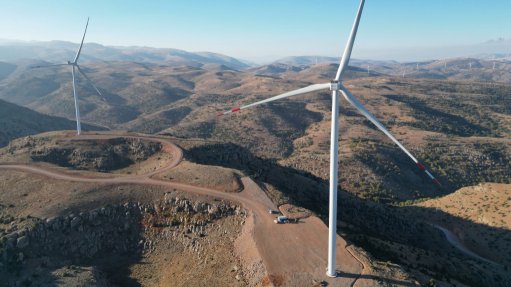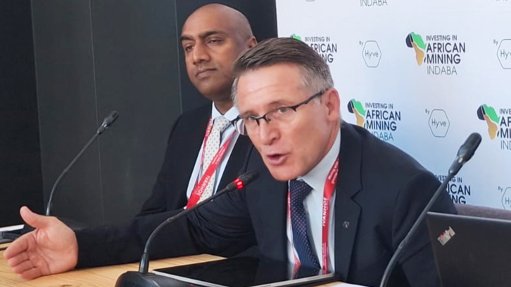How I beat cholesterol
A frequent experience for me during the past 18 months is acquaintances I haven’t seen in a while stealing furtive glances at me in a manner that betrays concern on their part about the state of my health. Some have been daring enough to ask if all is well with me.
I understand their concern – I’m no longer the sdudla that I used to be, having shed tens of kilograms since early 2022, when I started following a strict, nutritionist-designed diet and exercising for a minimum of 30 minutes daily, at least five days a week. The exercise is nothing hectic, though – it mostly consists of jogging in the mornings or, on those days when I wake up late or can’t brave the biting winter temperatures, brisk walking for the same amount of time during my lunchtime break.
You will notice from my new photograph at the top of this page that I’m now a slimmed-down version of my former self. I thought this might worry some readers. Let me reassure you: my weight-shedding, which I refuse to call weight loss, is absolutely voluntary.
But I need to qualify the ‘voluntary’ bit. I started seeing a new GP sometime in 2021, and the first order of business was to have some blood tests run to get an idea about the state of my health. I did not get a clean bill of health – the amount of cholesterol in my bloodstream was higher than normal. However, the doctor baulked at putting me on treatment but advised me to come back after a couple of months.
In January 2022, I was back in his office, having had blood drawn for another test the previous week. The lab work showed the cholesterol level was still elevated. I may not be medically trained, but I knew, even at that time, that this was bad news, as cholesterol can wreak havoc with one’s heart health and could lead to a stroke or a heart attack. It could also be indicative of issues with one’s metabolism and thereby be a precursor to Type 2 diabetes or other nasty conditions.
The GP still didn’t want to prescribe medication, preferring to first give lifestyle modification a chance. By the time I left his office, I was clutching a sheaf of papers about the do’s and don’ts of what to eat and drink and the types of physical exercise that could assist. The following weekend, I booked an appointment with a nutritionist who designed the diet I have been following ever since.
In July 2022, I was back at the doctor’s rooms and all my numbers – for the so-called bad and good cholesterol and something called triglycerides – were within the desired ranges. My last visit was in January this year, and there had been further improvement.
Clearly, my troubles – which also afflict many in this country and beyond – can be put down to our sedentary lifestyle and unhealthy diets. According to an article published in the South African Journal of Science in 2021, about 27% of this country’s population is obese, with the prevalence among women being higher, at 47%.
As obesity is an underlying theme in the development of several noncommunicable illnesses – the likes of cardiovascular diseases and diabetes – the article’s authors recommend that interventions be implemented at the policy level to tackle this condition.
The obesity-linked noncommunicable diseases are indeed a big deal, considering that they, alongside other noncommunicable diseases such as cancer, respiratory illnesses and mental disorders, are responsible for 71% of all deaths worldwide.
Instead of waiting for policy-level interventions, we should do our bit as individuals: be physically active and ditch unhealthy foods. The latter can be a tough one, but it’s worth it.
Article Enquiry
Email Article
Save Article
Feedback
To advertise email advertising@creamermedia.co.za or click here
Comments
Announcements
What's On
Subscribe to improve your user experience...
Option 1 (equivalent of R125 a month):
Receive a weekly copy of Creamer Media's Engineering News & Mining Weekly magazine
(print copy for those in South Africa and e-magazine for those outside of South Africa)
Receive daily email newsletters
Access to full search results
Access archive of magazine back copies
Access to Projects in Progress
Access to ONE Research Report of your choice in PDF format
Option 2 (equivalent of R375 a month):
All benefits from Option 1
PLUS
Access to Creamer Media's Research Channel Africa for ALL Research Reports, in PDF format, on various industrial and mining sectors
including Electricity; Water; Energy Transition; Hydrogen; Roads, Rail and Ports; Coal; Gold; Platinum; Battery Metals; etc.
Already a subscriber?
Forgotten your password?
Receive weekly copy of Creamer Media's Engineering News & Mining Weekly magazine (print copy for those in South Africa and e-magazine for those outside of South Africa)
➕
Recieve daily email newsletters
➕
Access to full search results
➕
Access archive of magazine back copies
➕
Access to Projects in Progress
➕
Access to ONE Research Report of your choice in PDF format
RESEARCH CHANNEL AFRICA
R4500 (equivalent of R375 a month)
SUBSCRIBEAll benefits from Option 1
➕
Access to Creamer Media's Research Channel Africa for ALL Research Reports on various industrial and mining sectors, in PDF format, including on:
Electricity
➕
Water
➕
Energy Transition
➕
Hydrogen
➕
Roads, Rail and Ports
➕
Coal
➕
Gold
➕
Platinum
➕
Battery Metals
➕
etc.
Receive all benefits from Option 1 or Option 2 delivered to numerous people at your company
➕
Multiple User names and Passwords for simultaneous log-ins
➕
Intranet integration access to all in your organisation


















